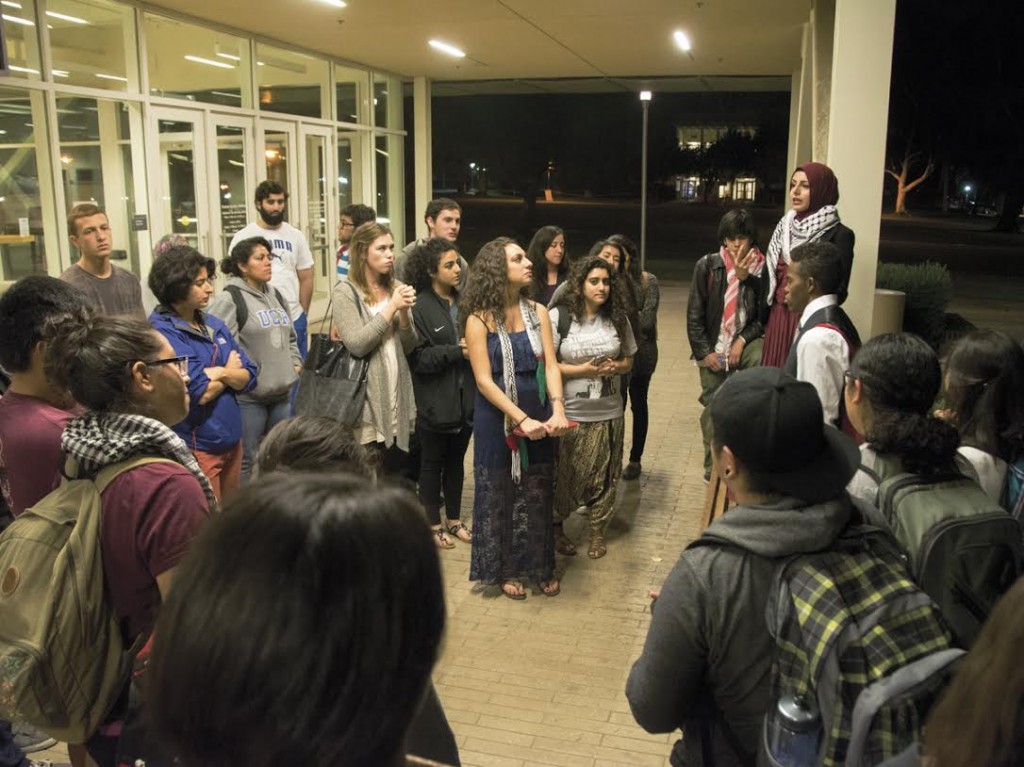
You are sitting in your world history lecture hall and learn of past events involving people from years gone by and events on lands far away, all while history is unfolding in front of our own eyes. The events of the present will one day find themselves in the textbooks of our successors. This is why the decisions we make matter. They are a legacy — an answer to the following generations about who we are and what we did with our short time on Earth.
Though the Israeli-Palestinian conflict has been occurring since the early 20th century — granted the term “conflict” is an understatement considering the grueling history of all of this — the decisions we make now are not merely an afterthought of an ongoing battle.
UC students, in particular, have put forth a campaign to divest from Israel in an attempt to end the intense political ramifications that come with Israeli occupation. In essence, portions of our tuition would not fund companies such as Caterpillar, Inc., which is notorious for selling bulldozers to the Israeli army that are used to systematically demolish Palestinian homes.
Divestment utilizes the logic of pressure by removing financial support from certain companies to promote a certain behavior or policy. Efforts for dialogue and diplomacy have proved futile in this case. There are Israeli groups, such as Boycott From Within, that state, “We are Israeli citizens, active against our government’s policies of racism, occupation and apartheid,” which endorse this pressure scenario that divestment employs.
It is not likely that the UC Regents will divest, but movements on various UC campuses continue to persevere, such as a vote that took place by a union of UC student workers in an effort to urge the regents to reconsider.
Above all, it’s important to recognize that the logic of pressure that comes with divestment has been effective in the past. Divestment from South Africa pressured the government to reform and end apartheid. Even if one argues that divestment does not bode well fiscally for the UC system, it results in a social discourse that can bring about change, as it did in South Africa.
UC divestment can begin to dismantle the system that allows this atrocity to persist. By divesting, the UC system would be calling for an end to the occupation of Palestinian land. Divestment would be a protestation of the conditions Palestinians must tolerate, and the lack of quality in schools and hospitals or the inability to access potable water since 95 percent of their water is undrinkable. The fact that roughly 60 percent of their youths are unemployed is a distressing reality, which comes as no surprise considering the sanctions placed on Gaza by Israel since 2006 only stymies their economy further. Food, water and shelter, all basic human needs, are hard to come by for Palestinians. This is not living. They are barely surviving. By not divesting, we are complicit in the lack of sustenance for the Palestinian people because we are only harming them further by investing in companies that fund Israel.
John Pilger, a veteran Australian journalist, wrote of the 2009 armed conflict between Gaza and Israel: “What happens in Gaza is the defining moment of our time, which either grants the impunity of war criminals the immunity of our silence, while we contort our own intellect and morality, or gives us the power to speak out.” Divestment could potentially be a powerful tool in 2015 if the UC regents were to wield it — one that could increase activism and bring about an end to all this violence.
Viewing this as simply a Jewish versus Muslim problem does a disservice to all the activists from varying cultural and religious backgrounds who have banded together with a common goal: ending all the bloodshed. However you want to paint this, this land belonged to the Palestinian people, and then their land was invaded. Wouldn’t you defend yourself if your home was demolished to pieces?
On campus in our history courses, we learn about Native Americans being slaughtered and forced to live on reservations while simultaneously funding an occupation in which Palestinians are under blockade and live within the largest open-air prison in the world all while Israel maintains control of their land and sea borders. This is precisely why divestment is so important.
Divestment is ultimately a testament to justice and human rights. No matter how uncomfortable this reality is, it’s happening and ignoring it won’t help anybody.








